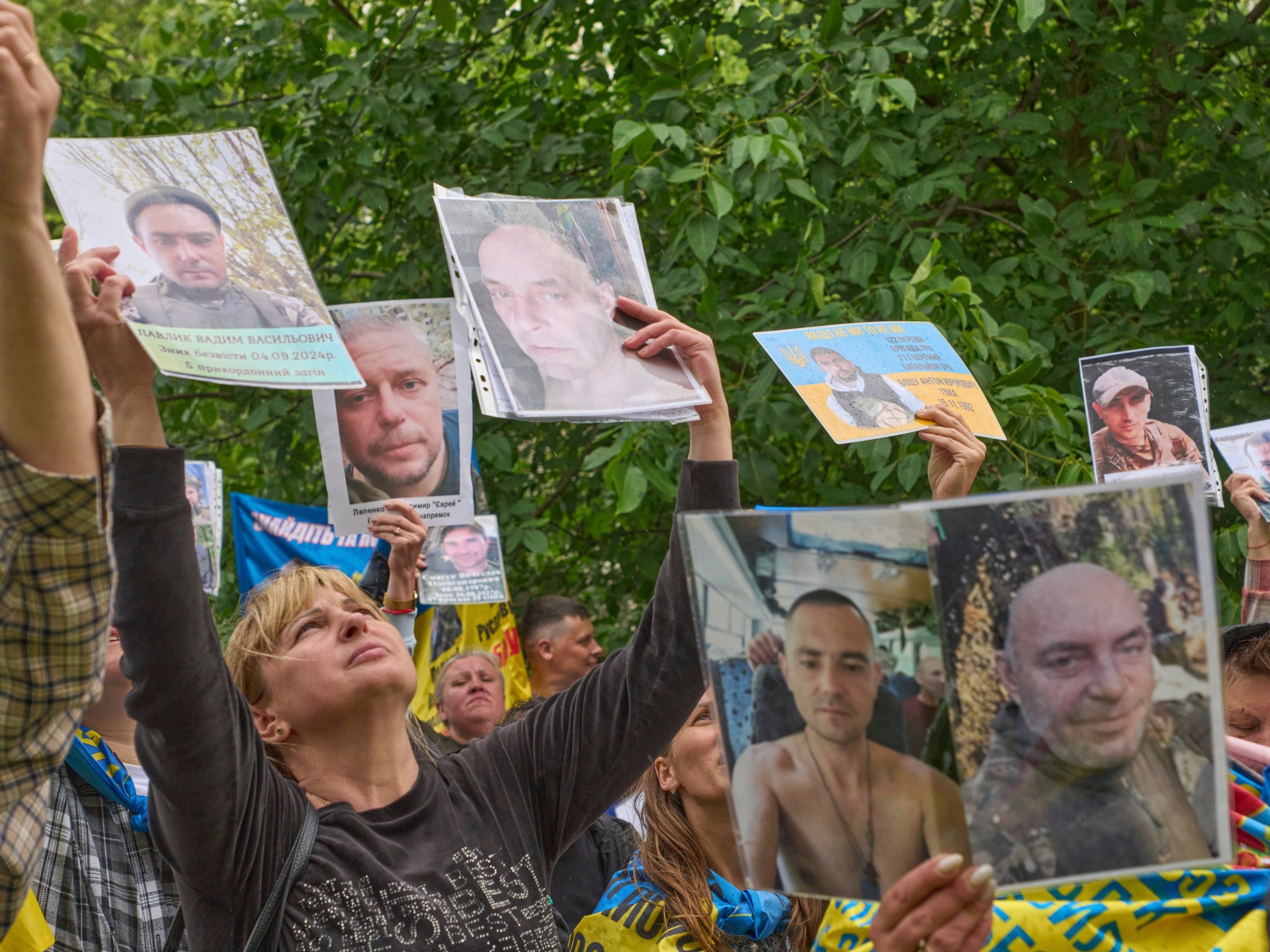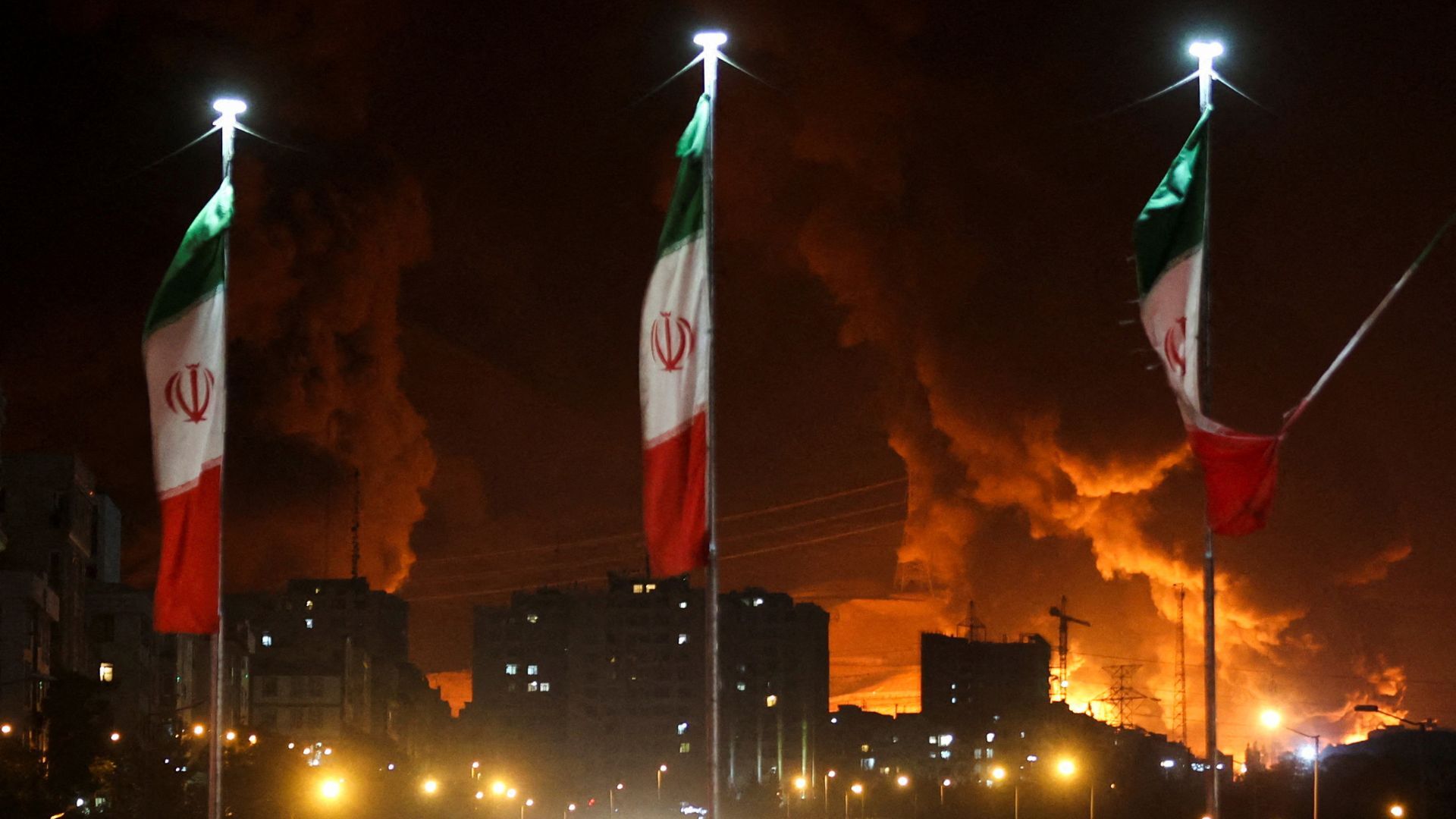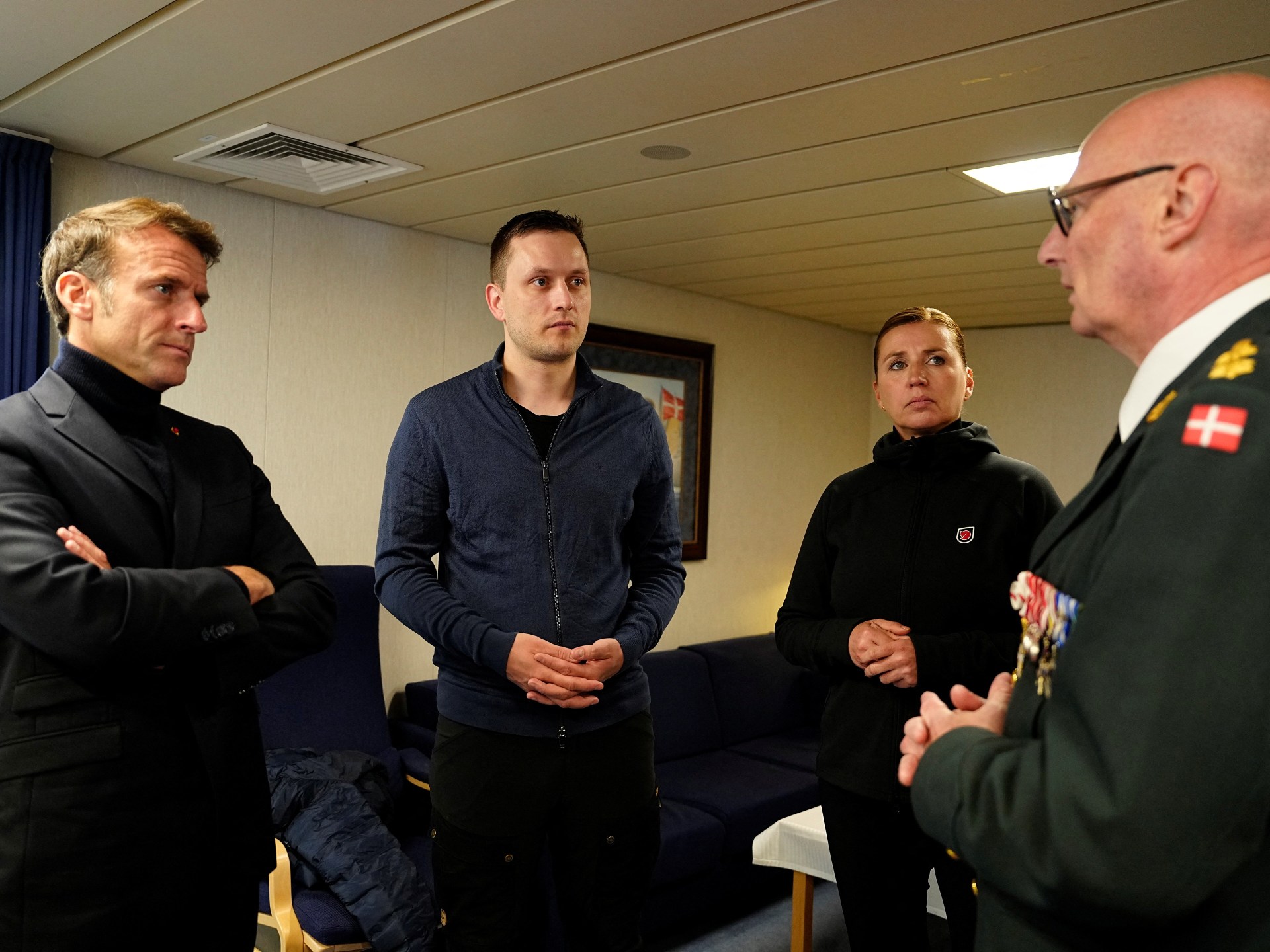Iran has launched a new wave of ballistic missiles against Israel soon after loud explosions were heard in its capital Tehran, as the two countries continue to trade heavy fire for a third consecutive day and as US President Donald Trump hints both at peace coming “soon” and at the possibility of the United States joining the conflict.
In the latest salvo on Sunday evening, an Iranian missile lit up the sky above the Israeli port city of Haifa soon after Iran’s armed forces told residents of Israel to leave the vicinity of “vital areas” for their safety.
Israel’s National Emergency Service reported at least 15 people injured in Haifa. Reuters news agency also reported projectiles landing in Haifa with explosions reported on impact.
The Iranian attack came as residents in Tehran reported earlier on Sunday shuddering blasts in different areas in the heart of the city. Reports say missiles struck in Niavaran and Tajrish, in the capital’s north, and around the Valiasr and Hafte Tir squares in the city centre.
Other cities attacked by Israel included Shiraz and Isfahan, where a military base of the Defence Ministry was hit. The Israeli army said it struck an aerial refuelling aircraft at Mashhad Airport in eastern Iran, describing it as its longest-range attack since launching operations against Iran last week.
Reporting from Tehran, Al Jazeera’s Tohid Asadi said, “Iran has not experienced a war to this extent since the Iran-Iraq War ended in 1988. There were similar Israeli strikes last year, of course, but nothing compared to what’s been happening since Friday.”
“The government said earlier today that metro stations, schools and mosques are going to be ready to host people. But parts of these facilities, including mosques and schools, do not seem safe enough to be used as a sort of shelter,” he added.
At least 128 people were killed by Israeli attacks across Iran on Friday and Saturday, Iran’s Health Ministry has been quoted by local media as saying. The Etemaad Daily cited the ministry as saying that around 900 injured individuals were admitted to hospital. At least 40 women, as well as several children, were reported among the victims. There were no reports as yet of casualties from Sunday’s attacks.
Earlier Sunday in Israel, rescue workers were searching for survivors in the rubble from the previous night’s wave of Iranian strikes. The hardest hit area was the town of Bat Yam, where more than 60 buildings were damaged. “Iran will pay a heavy price for the murder of civilians, women and children,” Israeli Prime Minister Benjamin Netanyahu said from a balcony overlooking blown-out apartments in Bat Yam, a city just south of Tel Aviv.
Overnight, Iran struck the port city of Haifa and neighbouring Tamra, where at least four women were killed. Since the start of the conflict on Thursday, at least 13 people have been killed and 380 have been wounded in Israel.
Al Jazeera’s Nour Odeh, reporting from Amman, Jordan, said, “The damage from Iranian attacks is certainly extensive and unprecedented. This is the first time that Israel has confronted a state with a formidable army in the region, certainly the first time since 1973 [against Egypt]”.
“To the north, in Haifa, oil and gas pipelines were damaged, but activities continue at the oil refineries”, she added.
Israel launched its operation with a surprise attack on Friday that killed several members of the Iranian military’s top echelon, killed several nuclear scientists, and damaged the country’s nuclear sites. Since then, Israel’s attacks have been broadening in their scope, hitting residential areas and Iran’s civilian and energy sectors and raising the stakes for the global economy and the functioning of the Iranian state.
Diplomacy
As both parties continue to pound each other with strikes, hopes for a diplomatic solution seem distant for now, though they will no doubt be high on the agenda of the Group of Seven summit beginning Monday in Canada.
Speaking at a press conference in Tehran on Sunday, Iran’s Foreign Minister Abbas Araghchi said Tehran does not seek to expand the conflict to neighbouring countries unless forced to.
Araghchi reaffirmed Iran’s opposition to nuclear weapons but defended its right to peaceful nuclear development. He said Iran had been ready to offer assurances in the now-cancelled sixth round of US talks, which could have led to an agreement, though Israel derailed the diplomatic progress.
The US and Iran have held five rounds of talks since April to try to find a path to a new nuclear deal that would replace a 2015 accord that Trump abandoned during his first term in office.
Araghchi also said Israel’s attacks on his country could not have materialised without the agreement and support of the US.
“We have well-documented and solid evidence of the support provided by American forces in the region and their bases for the military attacks of the Zionist regime”.
He said Trump has publicly and explicitly confirmed he knew about the attacks, that they could not have happened without US weapons and equipment, and that more attacks are coming. “Therefore, the US, in our opinion, is a partner in these attacks and must accept its responsibility.”
Talking to Fox News, Netanyahu seemed to clearly confirm that, saying he informed Trump ahead of launching the attacks.
He described the cooperation with the Trump administration as “unprecedented”, adding that the Israeli intelligence shares “every bit of information” with Washington. Netanyahu projected that regime change in Iran could be a result of Israel’s attacks.
Trump has denied any involvement and warned Tehran not to widen its retaliation to include US targets, but also didn’t rule out more direct US involvement beyond the vast arsenal and intelligence the US provides to Israel.
“If we are attacked in any way, shape or form by Iran, the full strength and might of the U.S. Armed Forces will come down on you at levels never seen before,” the US president said in a message on Truth Social.
He also claimed peace could be reached “soon”, suggesting that many diplomatic meetings were taking place.
“We can easily get a deal done between Iran and Israel, and end this bloody conflict,” he said.
Trump has repeatedly said Iran could end the war by agreeing to tough restrictions on its nuclear programme, which Iran says is for peaceful purposes but Western countries say could be used to make a bomb.
Trump told ABC he would be “open” to Russian President Vladimir Putin being a mediator. “He is ready. He called me about it. We had a long talk about it”.





